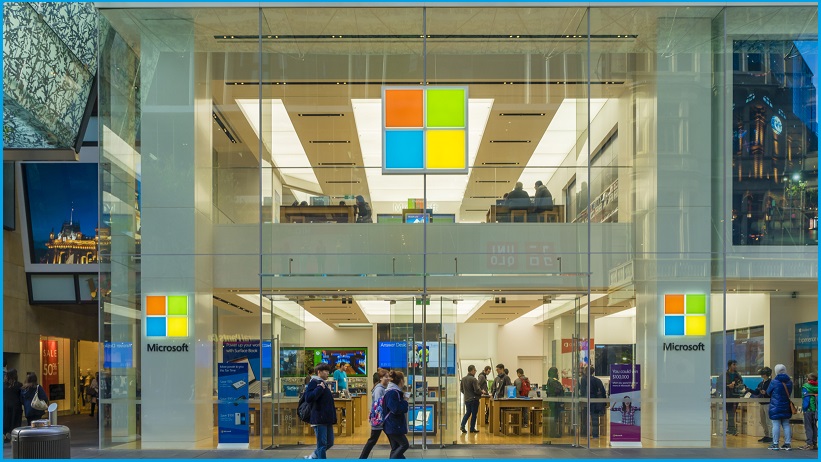Microsoft’s flagship store in Sydney will be transformed into an “experience centre” that doesn’t sell any products after the tech giant announced it would be shutting down all of its physical retail locations.
Microsoft announced on Friday that it would be permanently shutting down its bricks-and-mortar stores around the world and shift its focus to “digital storefronts”, namely websites.
The stores, mostly located in the US, have been shut in recent months due to the ongoing COVID-19 pandemic, and will not be reopening.
The move was not forced on Microsoft by the coronavirus crisis, The Verge reported, but it had been planned for next year and was accelerated due to the global situation.
The only Australian Microsoft store, located in Sydney Westfield, will now be transformed into an “experience centre”, which will not actually sell any Microsoft products.
Since the stores have been shut, Microsoft Store workers have been working remotely and from the company’s corporate offices, Microsoft Store corporate vice president David Porter said in a post on LinkedIn.
“Our team has proven success serving customers beyond any physical location,” Porter said. “We are energised about the opportunity to innovate in how we engage with all customers, optimise our talent for greatest impact, and most importantly, help our valued customers achieve more.”
“Our hardware and software sales have continued to shift online as our Microsoft product portfolio has evolved to digital products including Microsoft 365, gaming and entertainment. We will make our digital storefronts the best place to learn, buy and receive support across software and hardware.”
There will be no layoffs as part of the announcement, Microsoft said.
“Our teams were built with diverse backgrounds and skills, speaking over 120 languages and serving customers from any location,” Porter said. “The evolution of our workforce ensured we could continue to serve customers of all sizes when they needed us most, working remotely over the last few months.”
The majority of the Microsoft Stores, launched in 2009, are located in the US, with a handful in Canada and one in Puerto Rico, the UK and Australia.
“We will continue to co-locate engineering, sales, support, envisioning centres, executive briefing centres and retail spaces for maximum impact for our customers and our company,” Porter said.
“We are excited for this new day, the future of our business and the ongoing opportunity and development of every team member of Microsoft Store.”
Not everyone has welcomed the announcement, with many critical comments on Porter’s LinkedIn post focusing on the importance of bricks-and-mortar retail locations, especially in the ease of getting hardware repaired.
BookCoverZone co-founder Diren Yardimli labelled the move a “bad decision”.
“Physical contact with customers is an important asset when you’re selling a real product,” Yardimli said. “It might look rational from a profit / practicality and now public health standpoint but I can easily imagine how this will make people think twice before buying a Surface product.”
End web developer Richard Kazanowski said the decision was “rather troubling”.
“For those who have the Surface Complete Protection Plan, no longer having the physical stores takes away from the main benefit of being able to walk into a MS store with a broken Surface and get a replacement instantly,” Kazanowski said.










